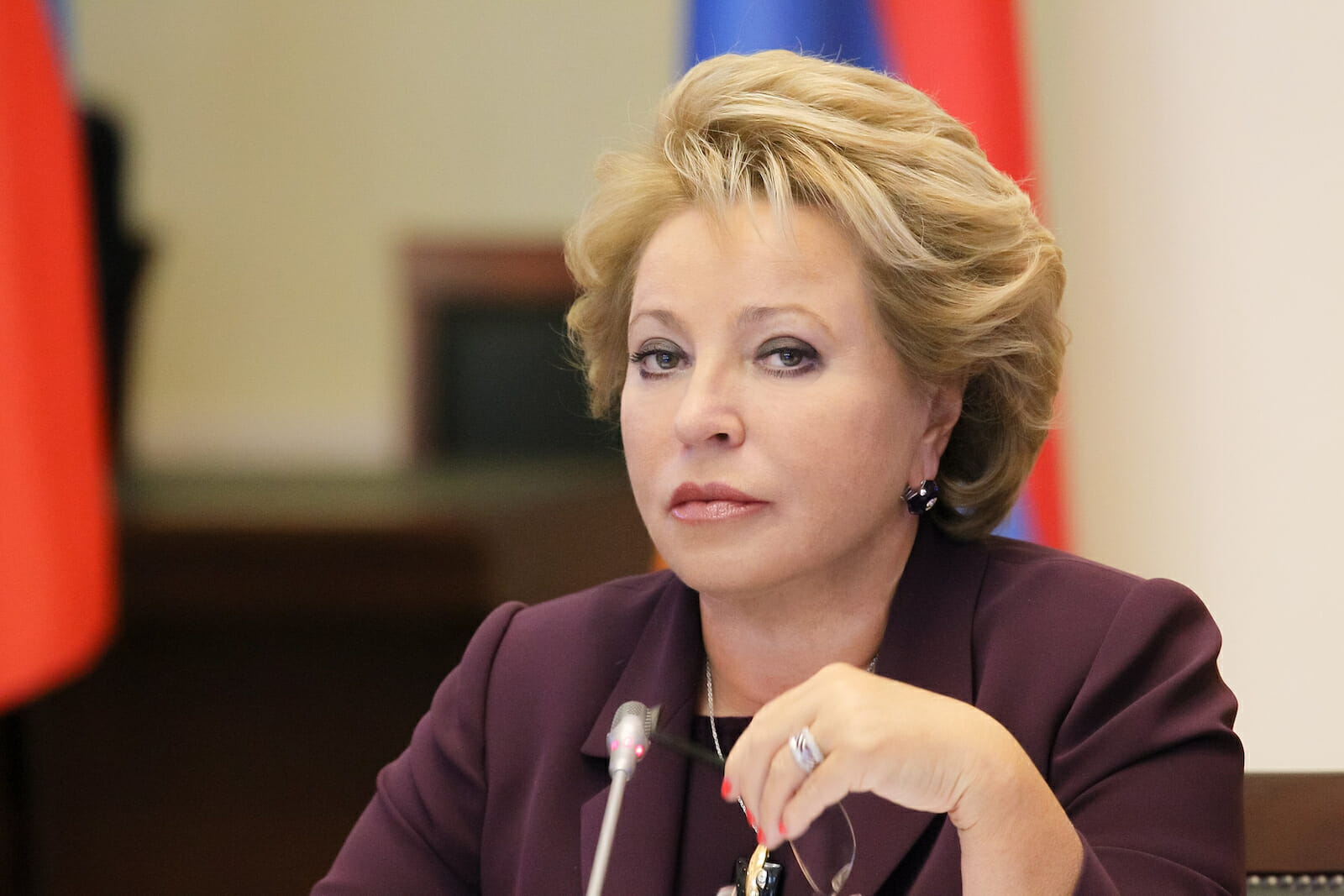
Valentina Matviyenko’s Lessons in Decentralization
In the past two months, the less well-known half of the Russian legislature, the Federation Council, has been experiencing dramatic structural changes under the tenure of Valentina Matviyenko. While its counterpart, the Duma, is often criticized as a pro-Kremlin institution, the Federation Council’s adherence to the center is far more resolute.
The Senators, as they are called, are barred from creating political fractions within its chambers and they have a history of expeditiously passing almost all pro-Kremlin legislation without debate and with unanimous support. On September 21, 2011 Matviyenko was appointed as the new Speaker for the Federation Council and since then the assembly has undergone major changes.
Matvienkyo arrived to this chamber as no stranger to Russian politics. Her former post was the governor of Russia’s second largest city, Saint Petersburg. Under a fledging 18% approval rate and accusations of corruption, she resigned in August and within a month filled the role as the new Speaker of the Russian upper parliament.
Today she is the most powerful stateswoman in Russian politics and the second highest ranking politician in all of Russian history, following behind Russia’s 18th century Empress, Catherine the Great.
Upon her inauguration as the Speaker of the Federation Council, President Medvedev rolled out a major decentralization initiative and provided Matviyenko with the mandate of increasing the authority of the Federation Council. Citing the Federation Council’s ascribed role as an advocate for Russia’s regional interest, Speaker Matviyenko capitalized on this opportunity to increase the often-nominal authority of her newfound post and chamber.
In an October meeting of the Federation Council, she stated, “It is absolutely obvious that it is not possible to govern all local processes from the center. I know from personal experience as a governor…The Federation Council can no longer remain silent…we will even shout if needed.”
And so in the past couple months, Matviyenko has succeeded in passing new procedural rules and laws that have centralized power within the Federation Council and the increased the scope of its authority. The first official act was to give sitting Senators, who are appointed and confirmed by regional governments, the ability to serve additional terms without regional approval in the case of where local politics change. This essentially provided cover for Senators whose changes in their respective district leadership may have otherwise led to their removal. Another project of Matviyenko was the complete overhauling of Federation Council’s committee structure, shaving its 27 committees down to 10. The initiative has garnered unanimous support from all the Senators and from President Medvedev.
The Speaker reasons that for a chamber of 166 members, having 27 committees was inefficient; instead, 10 committees would centralize both leadership and power. Furthermore, each of these 10 committees has been given the authority to independently decide the quantity and makeup of their subcommittees, with the maximum capped at four – that is unless the Speaker decides otherwise.
Earlier this month, the Speaker announced a Federation Council initiative to curtail the power of federal organs in regional governments, redelegating responsibilities to local authorities. In addition to shutting down federal offices, the Speaker has also pushed for increasing tax benefits for regional governments, criticizing the center for taking too big a share of much-needed local taxes.
And yet in all of this, Matviyenko has been toeing a delicate line between expanding regional autonomy via the Federation Council and maintaining Moscow’s federal authority. At a meeting with President Medvedev on October 17, she called on the importance of distributing federal power to local governments only in areas where they would be most effective. At this meeting, she is quoted saying, “We will not govern on the principle of ‘take as much power as you want’” – a clear reference and rejection of the tumultuous 1990s, when then-President Yeltsin told regional governments and republics to “take as much sovereignty as you can stomach.”
The push for decentralizing Russia’s center-strong government has been a political question since its beginning in 1991. All of which has yielded little to no progress. And considering Vladimir Putin’s almost certain return as the next President, the prospects of central authority yielding to greater regional independence remains grim. So how does one view the decentralization efforts of Matviyenko?
Matviyenko’s attempts to strengthen a traditionally unimpressive and nominally empowered upper chamber are significant endeavors. However, her push is still under the blessing and auspices of the very power it is seeking to fight: the center. Perhaps what compromises the Speaker’s work even more is the recent Kremlin initiative called “Big Government.” Rolled out by President Medvedev last month, the “Big Government” program and its accompanying 80-person committee are widely perceived as his first act as the future Prime Minister.
The President details this program as a broad coalition of Russia’s civil society, federal and regional government organs, and commercial representatives. This broad cooperation would work with the ruling party – United Russia – in enacting reform and change to Russian society and economy. The details are still vague about this “Big Government” committee, but its mission seems to counter the parallel effort of decentralization. While Speaker Matviyenko may be pushing for more regional independence, it appears that the soon-to-be Prime Minister Medvedev is increasing their political and policy dependence.
With the Duma elections next month and the Presidential elections in just four months, Russian leadership is bound to experience major changes. Especially with the recent poll coming out of predicting that the United Russia Party will lose its constitutional majority in the Duma, the future of Matviyenko’s decentralization project and even its genuineness remains uncertain at best.

